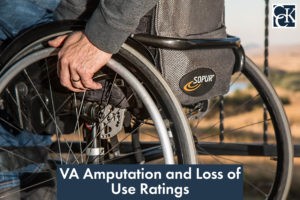Veterans (VA) Disability Lawyer Serving Colorado
VA offers disability benefits to veterans living in Colorado who have disabilities related to their time in service. Unfortunately, your initial application for service-connected compensation might be denied.
A veterans lawyer from Chisholm Chisholm & Kilpatrick LTD serving Colorado can help you appeal your denied claim for VA benefits. Our veterans lawyers focus solely on serving our veterans, just as you served our country during your time in service. To speak with a team member, call our office today at 800-544-9144.
Colorado VA Benefit Resources
Colorado offers a Regional Benefit Office in Denver as well as VA health care facilities in both Denver and Grand Junction.
Colorado VA Regional Benefit Offices
- Lakewood: Denver Regional Benefit Office
Colorado VA Medical Centers
- Denver: VA Eastern Colorado Health Care System
- Grand Junction: Grand Junction VA Medical Center
Colorado VA Outpatient Clinics
- Aurora: Jewell Clinic
- Burlington: Burlington Telehealth Clinic
- Glenwood Springs: Glenwood Springs VA Telehealth Clinic
- Salida: Salida Telehealth Clinic
- Sterling: Sterling Mobile Telehealth Clinic
Colorado VA Statistics
There are over 400,000 veterans living in Colorado, comprising 10 percent of the state’s population. Among these veterans, close to 100,000 of them currently receive VA disability compensation. Additionally, more than 164,000 of Colorado’s veterans are enrolled in VA’s health care system, and more than 104,000 have received treatment at a VA facility.
More than 41 percent of Colorado’s veteran population is at least 65 years old, and almost 13 percent are military retirees.
How to Receive VA Disability Benefits in Colorado
In order for a VA claim to be successful, three things are required. First, you must have a current, diagnosed disability. Second, you must provide evidence of an event, illness, or injury during your military service. Lastly, you must establish a “nexus” between the claimed disability and the event or injury during service.
You Are Currently Diagnosed with a Disability
VA requires a current diagnosis of a disability from an appropriate healthcare professional prior to receiving disability benefits. By disabling, VA means your condition must impact your functionality in some way. Your functional limitations might be work-related, such as the inability to stand or sit for long periods, or they might impact other daily living activities.
You Experienced an Event, Injury, or Illness During Service
To receive VA disability, you must prove not only that you have a currently diagnosed condition, but that an event, injury, or illness occurred during your service. Examples of this may include events that occurred during training exercises, combat missions, or exposure to herbicides.
Providing a “Nexus” Between Your Condition and the In-Service Event
A “nexus” links your current condition to the event, injury, or illness that occurred during your service. Upon filing a claim for benefits, VA may schedule you for a Compensation and Pension examination to provide a nexus opinion. A positive nexus opinion requires the medical professional to state that it is “at least as likely as not” that your current condition is due to your military service. You can also provide nexus opinions from physicians or treatment providers who work outside of the VA system.
How Is VA Disability Compensation Determined?
The severity of your condition determines the disability rating you will receive. VA does not require you to be fully disabled to collect benefits. Instead, it grants benefits on a scale from 0 to 100 percent.
Your combined disability rating determines the amount of monthly compensation you will receive. For help calculating your veterans disability combined rating, check out our VA disability calculator.
As of December 1st, 2024, the VA disability rate benefit amounts are as follows:
- 0 percent disability rating: $0.00 per month
- 10 percent disability rating: $171.23 per month
- 20 percent disability rating: $338.49 per month
- 30 percent disability rating: $524.31 per month
- 40 percent disability rating: $755.28 per month
- 50 percent disability rating: $1,075.16 per month
- 60 percent disability rating: $1,361.88 per month
- 70 percent disability rating: $1,716.28 per month
- 80 percent disability rating: $1,995.01 per month
- 90 percent disability rating: $2,241.91 per month
- 100 percent disability rating: $3,737.85 per month
Total Disability Based on Individual Unemployability (TDIU)
If you are unable to secure and maintain substantially gainful employment due to your service-connected conditions, you may be eligible for Total Disability Based on Individual Unemployability (TDIU). TDIU provides an alternative path to receiving compensation at the 100-percent disability level, even when your conditions do not combine to 100 percent.
Call 800-544-9144 for a Free Case Evaluation With a Member of Our VA Disability Team
A veterans disability lawyer serving Colorado at Chisholm Chisholm & Kilpatrick LTD can help you fight for VA disability benefits. We offer a free case evaluation over the phone.
Call 800-544-9144 to speak with a member of our team today.
Colorado Blog Posts
-
 Veterans Affairs (VA) Introduces New Automated Forms Replacing Statement in Support of Claim
Veterans Affairs (VA) Introduces New Automated Forms Replacing Statement in Support of ClaimThe Veterans Benefits Administration (VBA) is an agency within the Department of Veterans Affairs (VA) that is responsible for providing financial and other forms to assist veterans and their dependents when applying for VA disability benefits. It has been making continuous improvements to the claims processes to help veterans and their families receive the benefits […]
-
 How VA Will Process Blue Water Navy Veterans’ Claims
How VA Will Process Blue Water Navy Veterans’ ClaimsCongress recently passed a law stating that veterans who served within 12 nautical miles seaward of the demarcation line of Vietnam are eligible to receive the same presumption of exposure to herbicides as veterans who served on the landmass of Vietnam. Below, CCK breaks down how VA is going to adjudicate Blue Water Navy veterans’ […]
-
 VA Amputation and Loss of Use Ratings
VA Amputation and Loss of Use RatingsIf you suffer from an amputation or loss of use of a part of your body as a result of your military service, you may be entitled to additional VA disability benefits in the form of Special Monthly Compensation (SMC). Specifically, SMC is a monthly benefit for veterans who have service-connected conditions that result in […]